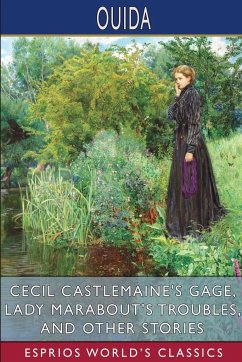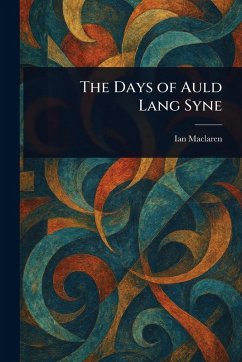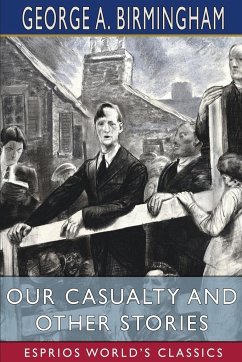Nicht lieferbar

Beatrice Boville and Other Stories (Esprios Classics)
Versandkostenfrei!
Nicht lieferbar
Weitere Ausgaben:
Maria Louise Ramé (1839-1908) was an English author. She wrote under the pen name Ouida. She wrote more than 40 novels, children's books and collections of short stories and essays. She was an animal rights activist and animal rescuer, and at times owned as many as thirty dogs. Her work went through several phases during her career. In her early period, her novels were a hybrid of the sensationalism of the 1860s and the proto-adventure novels dubbed "muscular fiction" that were emerging in part as a romanticization of imperial expansion. Later her work was more along the lines of historical r...
Maria Louise Ramé (1839-1908) was an English author. She wrote under the pen name Ouida. She wrote more than 40 novels, children's books and collections of short stories and essays. She was an animal rights activist and animal rescuer, and at times owned as many as thirty dogs. Her work went through several phases during her career. In her early period, her novels were a hybrid of the sensationalism of the 1860s and the proto-adventure novels dubbed "muscular fiction" that were emerging in part as a romanticization of imperial expansion. Later her work was more along the lines of historical romance, though she never stopped commenting on contemporary society. Sympathetic portraits of tragic painters and singers fill her later novels.











